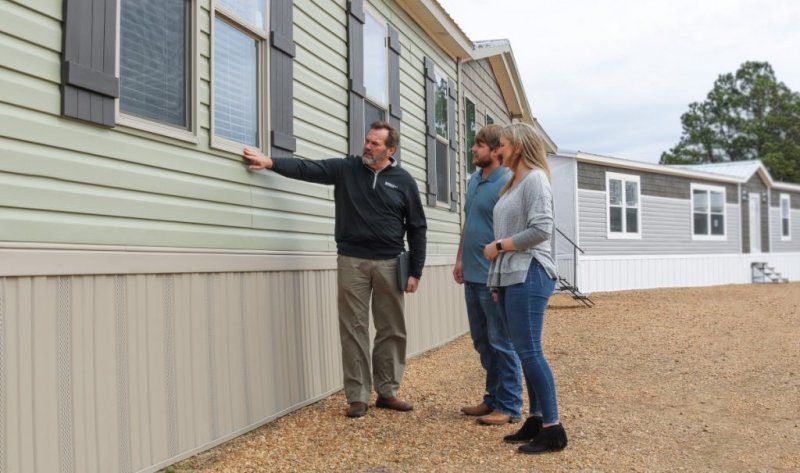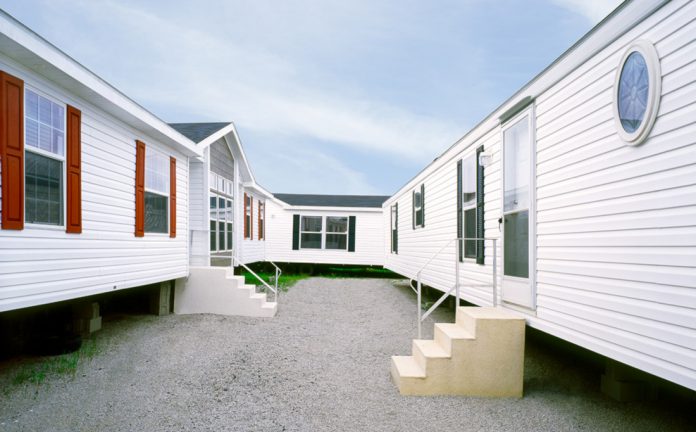If you’re researching whether or not to buy a manufactured or mobile home, look no further than this short guide.
Today, over 22 million people in the U.S. live in manufactured homes, also known as mobile homes. That’s more than five percent of all Americans, and that it’s climbing every year.
The benefits of owning a manufactured home are numerous when you understand how dealers operate on your behalf.
It can take a reasonably long time to coordinate all of the details at the end of the day, so here’s the most vital information you should know when working with a manufactured home dealer.
What role does a manufactured home dealer play?
In the mobile home industry, a dealer is similar to one you would find in the auto industry.
For instance, no one buys a new Ford F-350 diesel truck directly from the manufacturer; you have to buy one through a dealership that ideally specializes in quality diesel trucks.
The same business model applies to manufactured home dealerships. Dealers fulfill a critical role between homebuyers and the factories that can’t reach consumers without a dealership.

What types of mobile home dealers are available?
Generally, mobile home dealers fall into one of three categories: independent, factory-direct, and corporate. Each type has several pros and cons you should consider when purchasing a manufactured home. That way, you won’t waste your time talking with a salesperson who doesn’t have the inventory you’re searching for or doesn’t have your best interests in mind.
Independent dealers
Independent manufactured home dealers are small businesses that operate as wholly different entities from manufacturers.
Often, these businesses are family-owned and operated, giving them the advantage of local, personalized customer service. If you want the best value possible, an independent mobile home dealer could be the best choice if you want a local property.
Pros:
- Personalized, one-on-one customer service
- Usually the lowest prices overall
- Hands-on knowledge of the local real estate market
Cons:
- Limited inventory
- Model homes may not be “show ready” with functioning utilities and furniture
- Limited financing options available in most cases
Factory-direct dealers
When reviewing your options, you’ll hear the terms factory-direct and manufacturer-direct used interchangeably. Long story short, these types of dealerships only sell homes through one particular manufacturer.
Usually, the same company owns both the factory and the dealership, but operates each as a separate line of business. This means that a factory-direct dealer will offer more customization options for your home, and carry a larger inventory.
Pros:
- More customization options
- Larger inventory overall
- Quality setup and installation
- Model homes likely “show ready”
Cons:
- Only one brand of a mobile home to choose from
- Mid-range pricing may make manufactured homes less affordable for some consumers
- Dealer may not showcase all available models on the lot
Corporate dealers
Also known as “mega dealers” in the industry, corporate dealers offer the broadest selection and the most financing options. They’re similar to an auto dealership that carries all types of vehicles from a select few manufacturers.
But they’re very different from factory-direct dealers because they can essentially sell any mobile home on the market. It’s only a matter of having the stock on the lot and how the dealership’s owner positions the business in the local housing market.
The catch is that these types of dealerships come at a higher cost, but there are other perks to keep in mind too before you make a decision.
Pros:
- Typically keeps a comprehensive inventory on hand
- Model homes almost always fully functioning and show ready
- More financing options, often through the dealer itself
Cons:
- Highest prices
- Not too many personalized interactions during the buying process and post-sale
- Financing terms may not provide the best value over the long term
How can you afford a manufactured home?
So far, this guide has outlined the essentials of manufactured home dealerships. If you won’t be buying a mobile home with cash savings, that’s where financing comes into play.
Dealer financing
Often, the dealer itself will offer their own financing solutions. Small dealerships may not offer to finance because they don’t have the resources for that level of service, but a factory-direct or corporate dealer can usually offer financing for prospective buyers.
Some mobile home dealers work with specific banks and lenders to provide financing. In these cases, you’ll want to ensure you understand the loan backwards and forwards and ensure the terms are in your favor.
The best part about dealership financing is that you have the flexibility to shop around and ultimately choose the most affordable option for your needs.
Finding mobile home dealers online
When shopping for a manufactured home, finding a reputable, trustworthy dealership may feel like a challenge.
This guide outlines the fundamental qualities of the best dealers, but in the real world, it’s much harder to judge whether or a dealership has your best interests in mind. That requires talking with dealers in your area to ensure that they’re a good fit. So the next time you need a go-to resource about buying mobile homes, visit our dealers’ page and browse through award-winning mobile home dealerships to find one that best fits your needs and can pair you with the right home and financing.














